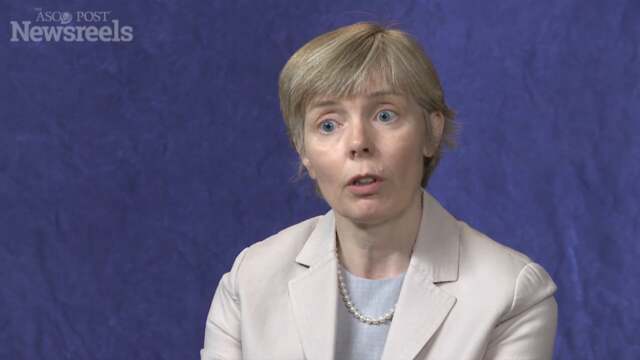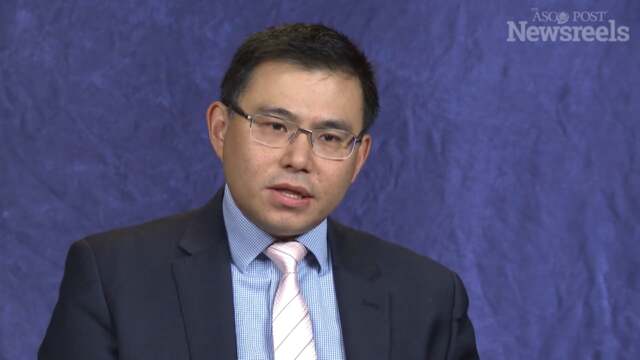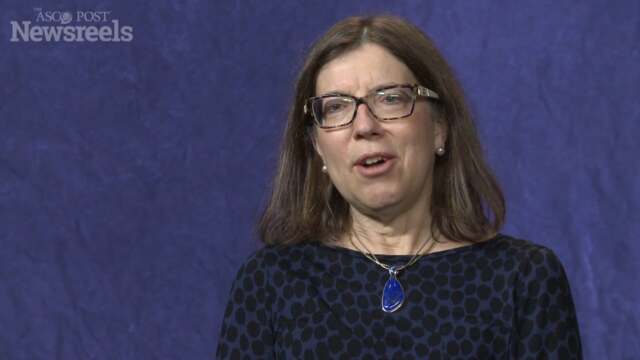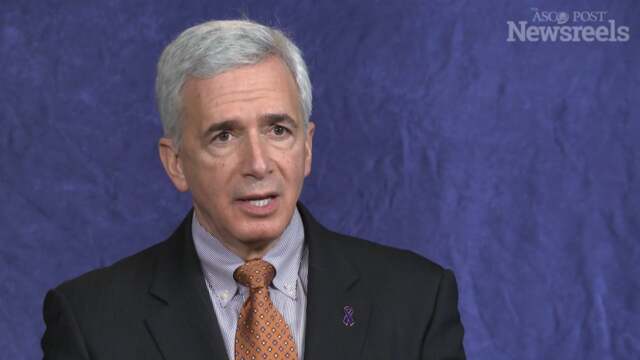Sarah E. Hoffe, MD, on Pancreatic Cancer and SBRT: Pros and Cons
2017 Gastrointestinal Cancers Symposium
Sarah E. Hoffe, MD, of the Moffitt Cancer Center, discusses the controversial role of radiation in the treatment of pancreatic cancer, recent advances in delivering short courses of high-dose stereotactic body radiation therapy, and how best to integrate this new modality in borderline and locally advanced disease.
Eileen M. O’Reilly, MD, of Memorial Sloan Kettering Cancer Center, discusses a range of topics, including tyrosine kinase inhibitors, immune therapies, targeted approaches, and DNA damage repair strategies.
Ian Chau, MD, of the Royal Marsden Hospital, discusses the continuum of care in esophageal and gastric cancers and the multiple active lines of treatment. Routine adoption of genomic testing may lead to further refinement of current treatment and more options in the future.
Cynthia L. Sears, MD, of Johns Hopkins University School of Medicine, summarizes her keynote talk on microbes, microbiota, and colon cancer. Next-generation sequencing combined with biologic studies suggests that most colorectal cancer cases have specific microbiome associations.
Mark Talamonti, MD, of NorthShore University Health System, discusses the technical prerequisites for minimally invasive surgery in pancreatic cancers and the potential benefits to patients.
Masanori Terashima, MD, PhD, of Shizuoka Cancer Center, discusses phase III study findings evaluating bursectomy for patients with subserosal/serosal gastric cancer (Abstract 5).





